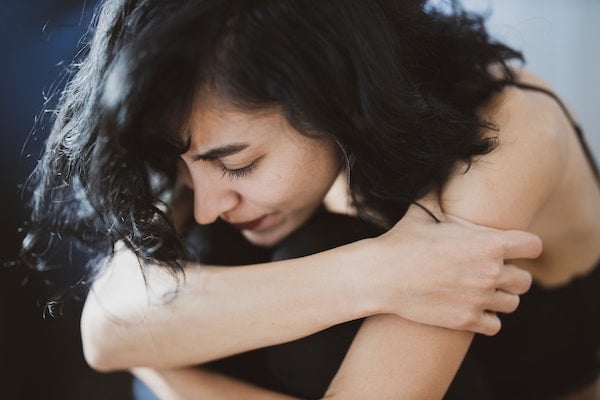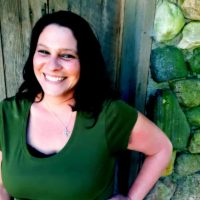My mom died when I was 21 years old. She was an alcoholic, and I was bitter.
I spent my early childhood bouncing between foster care homes with my autistic brother. When we weren’t in foster care, we were often shuffled off, and I was left in charge of watching out for my brother quite often. He was two years older than me and considered a high-functioning autistic, but the fact remained—we were young children left to care for one another.
I helped my mother get home from bars and friends’ houses on multiple occasions; she would often be too drunk to walk. I was the victim of sexual abuse during this time, on more than one occasion. She was oblivious, and when I did tell her, she discounted my story.
She engaged in relationships with men who were physically, emotionally, and mentally abusive to her, while my brother and I had to sit by and witness it all. It was me that had to pound on a neighbour’s door one night to borrow their phone so I could call the police, because I was afraid her boyfriend was going to kill her. And it was me she blamed when the courts deemed her an unfit mother. “You’re going to live with him now! Are you happy now?!” she screamed at me when our dad came to pick us up.
Doctors found that I was forming an ulcer in my stomach. I wasn’t even six years old.
Our father gained custody of us before that happened. While he was also an alcoholic, the life he provided us was much more stable and much less stressful. I wouldn’t call it a normal childhood by any stretch of the imagination, but at least it wasn’t the life that our mother had been providing us.
I had a rocky relationship with my mother as I grew older. I didn’t understand. I didn’t understand how a person could continually choose to go back to a substance that was ruining their life, that was alienating them from their family, that was eating at their physical form. I didn’t understand how a woman who was smart enough to answer damn near every question on the Jeopardy quiz show, a woman who read voraciously, could be so ignorant to what she was doing to herself. My mother was hospitalised multiple times for alcohol-related illnesses throughout my childhood.
As an adult, I found her weak and unable to walk one afternoon, and I helped her to the kitchen where I assumed she was going to want something to eat. Instead she got the bottle of tequila out of the fridge and did a shot right there in front of me. I couldn’t do it anymore. I had to distance myself from her. I could no longer watch her slow suicide.
The final time she was hospitalised was just after my eldest son was born. She had been on a ventilator and almost didn’t pull through. She really sat there in a wheelchair in a rehabilitation center and berated me for not bringing my son to see her. He was an infant and she was too weak to walk, let alone hold him.
My mother died not long after that last meeting, without ever meeting her grandson. And I blamed myself. I thought that if I had not separated myself from her, if I had taken my son to meet her, maybe she would have tried harder to quit drinking. While my mother and I had a rocky relationship and I didn’t understand her addiction, I did have a handful of fond memories from my childhood. Part of who I am is because of who she was. I wished that the woman who I had these memories with, and who I got some of my best qualities from, was still around for my children.
It took me nearly a decade to come to terms with the fact that her early death was not my fault. It took me that long to realise that you can throw a drowning person a raft, but you can’t make them grab it. It took me 10 whole years to realise that when she took that first drink, and made a conscious decision to drink every day, she was running from demons that I could never understand. That some people are equipped to handle the things that life throws at them, and some are not. And those who are not, hide behind the crutch of addiction—to escape and ignore their pain.
From my childhood, I carried my own demons into my adult life. Feelings of guilt, insecurity, and inadequacy. Somehow, I dodged the addiction demon, and dealt with the cards that life dealt me. Slowly I earned a feeling of security through my own hard work and perseverance. Slowly I built my self-esteem and self-confidence, but only through kicking ass on a continual basis and proving myself to myself. I did a lot of soul-searching and a lot of my own form of self-medication—writing all of it down to get my thoughts and feelings out of my head and out of my heart.
It took me 10 whole years to forgive my mother, and to forgive myself.
I can’t say that I did the right things when it came to my mother, but I can’t say that I did the wrong things, either. I did the things that I needed to do to survive.
Finally, I came to the realisation that even if I had done things differently, she likely would have died in the same fashion. Finally, I was able to let go of my regret, and I was able to let go of my anger and sadness. I was able to forgive myself for something that wasn’t my fault, and I was able to forgive her for something that was out of her control.
I was able to let go of the woman alcohol had turned my mother into and remember the woman my mother really was.


 Share on bsky
Share on bsky





Read 0 comments and reply